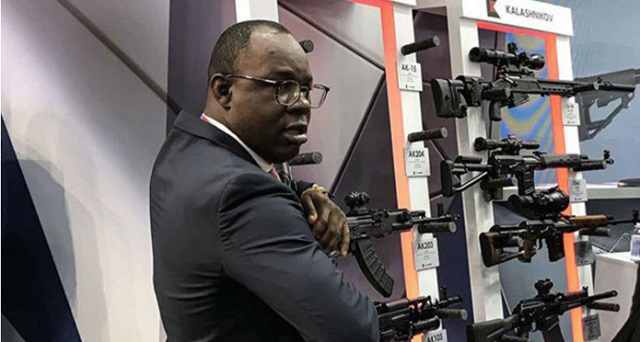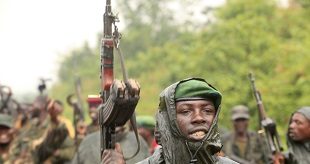
Landmark agreements signed
During the summit, Russian companies signed cooperation agreements with various African countries. LUKOIL, which has been active in Ghana, Cameroon, the Democratic Republic of Congo and Nigeria, signed an agreement with the Equatorial Guinea to participate in hydrocarbons trade.
New Cloud Technologies signed an agreement with the Democratic Republic of the Congo to enable the latter state access the Russian software package MyOffice for various purposes including education.
The Roscongress Foundation, Russia’s socially oriented non-financial development institution and a major organizer of international conventions, exhibitions, and public events, signed cooperation agreements with a number of African countries to establish a direct dialogue with representatives of the authorities and the business community of the continent.
This includes agreement with the Egyptian Exporters Association — Expolink, the National Agency for Investment Promotion of the Republic of the Congo, the Nigerian Investment Promotion Agency, the Eswatini Investment Promotion Authority, the Chamber of Commerce of Burkina Faso, the Chamber of Commerce, Industry, and Agriculture of Tanzania, the Chamber of Commerce and Industry of Abuja, the Kenya National Chamber of Commerce, the Chamber of Commerce and Industry of Mali, and the Confederation of Business Associations of Mozambique.
So far, some of the Russia’s companies that have already made inroads in Africa investing mainly in mineral resources – diamond, gold, graphite, pozzolana, iron ore, phosphates and copper, among others. Some of the companies that have made their investments include; Gazprom, Rostec and Rosatom, with most of their operations in Uganda, Algeria, Angola, Egypt and Nigeria.
Russia has also been re-establishing links with Angola and Botswana, where Alrosa, the Russian giant, mines diamonds. Russia has interests in Zimbabwe, Sierra Leone, Ethiopia, Morocco, Democratic Republic of Congo, Sudan, and the Central African Republic.
The gold producer, Nordgold, which acquired the mine in 2010, has since invested almost $1billion in the Guinea to extend Lefa mine’s life and improve efficiencies at the operation. The firm said it has also paid $180 million in corporate taxes and royalties from 2011 to 2018.
Russia is also building a major industrial zone comprising 23 firms in a planned international industrial and logistics hub near Egypt’s Suez Canal and Putin says there are plans for more firms to join in the future.
The Zone that will produce a range of products from agriculture to machinery, intends to use Egypt as an anchor to expand into the continent.
The Middle East country is also working on a fertilizer factory in Zambia as it explores opportunities in the east African region, with infrastructure development being in the top agenda. It also made it clear that it will continue to train military personnel and law enforcement officers for African countries at specialized Russian institutions.
Currently, military personnel from 20 African countries are studying at higher education institutions of the Russian Defence Ministry. Russia has also signed military cooperation agreements with over 30 countries on the continent, including; Rwanda, Tanzania, Burkina Faso, Burundi, Guinea.
The Swedish Defence Research Agency says there is also heated speculation about the potential for establishing military bases in several countries including Burundi, Mozambique, Eritrea, Somaliland, Egypt, Libya and Sudan.
Russia has also become the largest supplier of arms to Africa, accounting for 35% of arms exports to the region, followed by China (17 %), the United States (9.6%), and France (6.9 %) between 2012 and 2016, according to the Stockholm International Peace Research Institute (SIPRI). Currently, Russia is also involved in training Central Africa Republic’s army and presidential guard.
This development comes three months since the African countries launched the African Continental Free Trade Area in Niger in July, opening up market for goods and services to 1.2billion people with a combined GDP of US$3trillion.
It also comes a few months since China and Japan hosted African heads of state for their countries to boost trade relations.
Economists speak out
Commentators on the latest development told The Independent that chances are that there will be no contestation between Russia and the other big countries such as China, EU, USA because China has already taken over Africa.
Ramathan Ggoobi, a senior economics lecturer at Makerere University Business School (MUBS) said Africa is just trying to diversify risk by not over concentrating on China when other alternative markets are in place.
China has so far invested billions of dollars in infrastructure projects including railways, airports, oil and gas, roads and energy, in many countries in Africa including Uganda.
“I think they (African leaders) are being wise,” Ggoobi said, “What I don’t know is whether Russia still has the muscle to compete with China…because China has built a lot of capacity in the last four decades.”
Ggoobi added that China has taken over not only Africa but almost the entire world, and that it recorded such a rapid expansion under the watch of superpowers.
He, however said, it is never too late for countries like Russia to come to the continent.
“I am optimistic that Africa is also going to develop within a short time as Russia’s influence in Africa could trigger US and EU to return big on the continent,” he said.
On the other hand, Julius Kiiza, a senior lecturer at Makerere University and expert on industrial policy and political economy told The Independent that there are two important issues to look at in the recent superpower’s scramble for the content: Russia’s capabilities and Africa’s interest.
He said Uganda and Africa should discuss how to tap into the capabilities of Russia, China and the rest in a manner that promotes transformation.
He said African countries need to tap into Russia’s military capabilities for the peace and security of its citizens.
“I don’t think we need to go to a super power or a vibrant actor in the geopolitical space to ask for assistance in agro processing which does not add substantial value…I find that as a wasted effort…if you are talking to Russia, you need to be talking big,” he said.
Kiiza also said that Africa should strengthen the area of human capital development to promote local content.
“The policy documents are talking about local content but we are not adequately investing in that space,” he said. “…we need to attract foreign assistance in a manner that forces investors to partner with our local companies.”
He added that there is need for the African countries to develop their iron and steel industry due to its supportive nature to other sectors such as industries and construction.
However, Nikita Gusakov, the chief executive officer at the Russian Agency for Export Credit and Investment Insurance (EXIAR) told The Independent in an interview that Russia’s absence in Africa meant that they had to return in a big way.
“For a long time, Russia has not been active in promoting its products especially in Africa. Many people didn’t know what Russia can offer” he said, adding that the country now plans to participate in activities and exhibitions to boost its visibility in Africa. Russia is currently a shareholder of the continent’s multi-lateral lender, African Export Import Bank.
When asked to justify why one should think of doing business with Russia and not either China or Europe, Gusakov, said: “Our aim is to boost our trade between us and not to squander the African resources the way other countries are doing,” he said. He added that Russia, like, Africa, has many mineral resources to exploit and benefit the population.
****
 The Independent Uganda: You get the Truth we Pay the Price
The Independent Uganda: You get the Truth we Pay the Price


